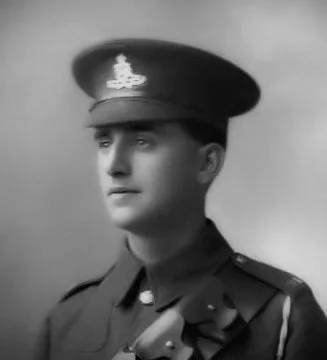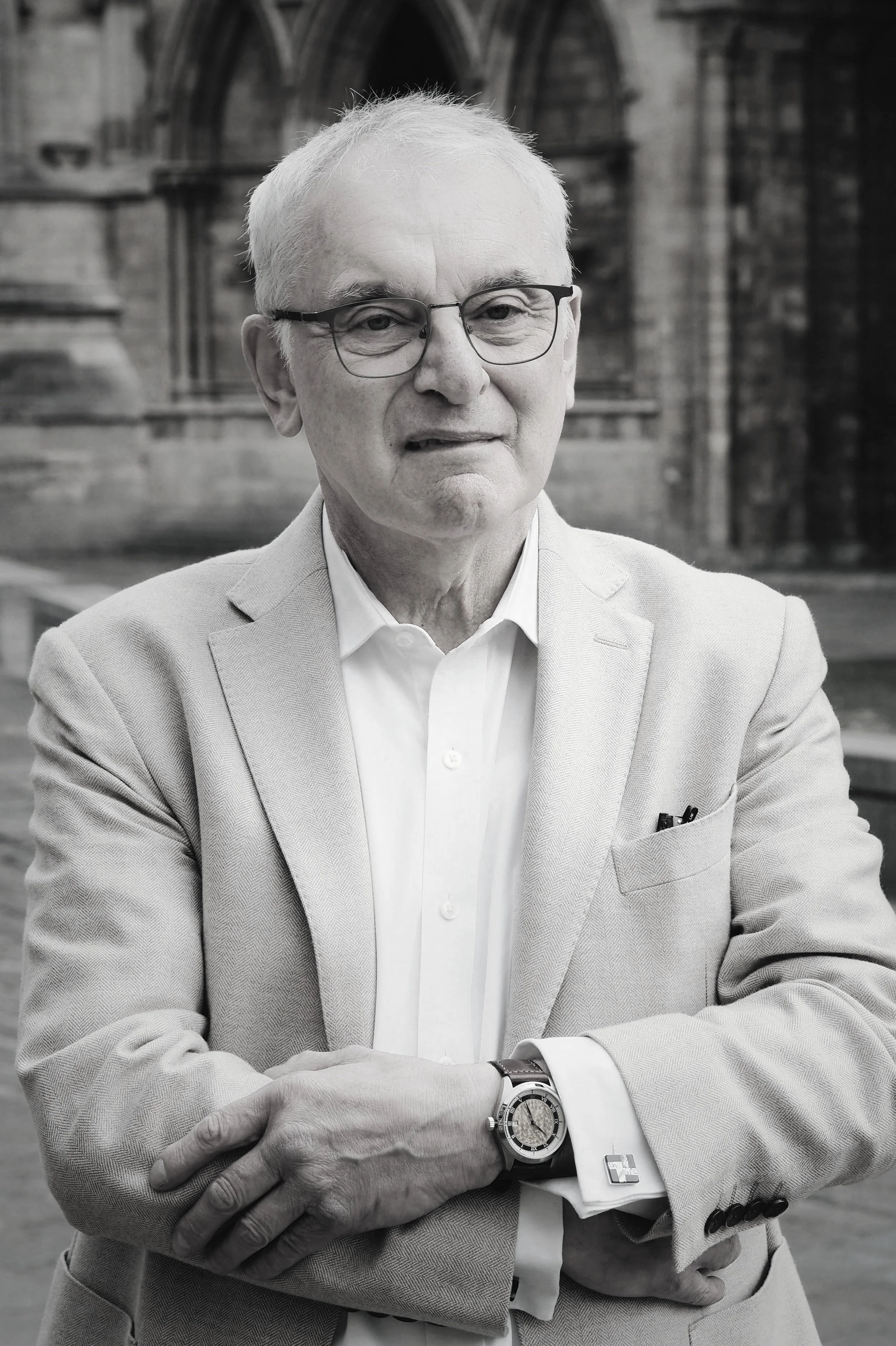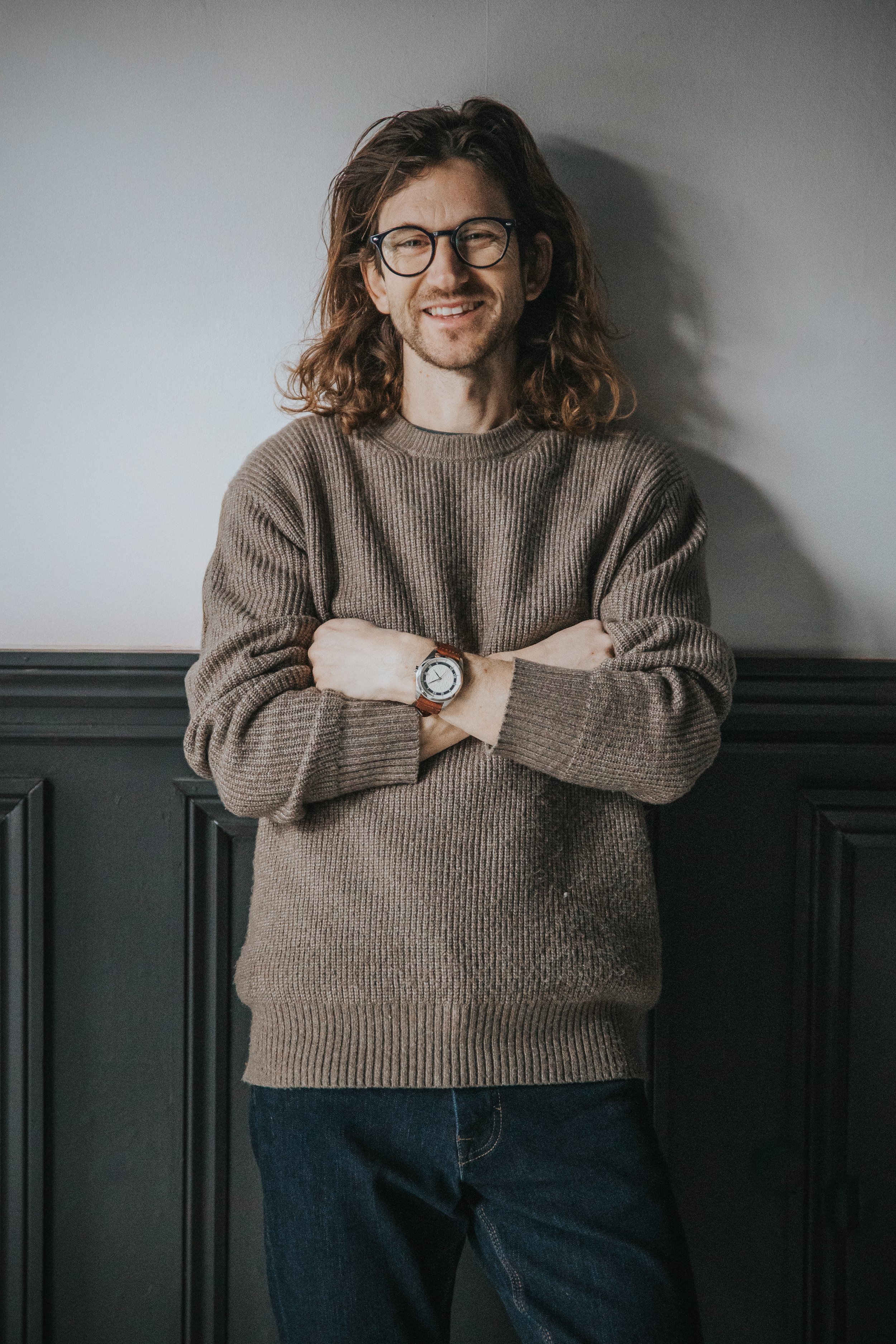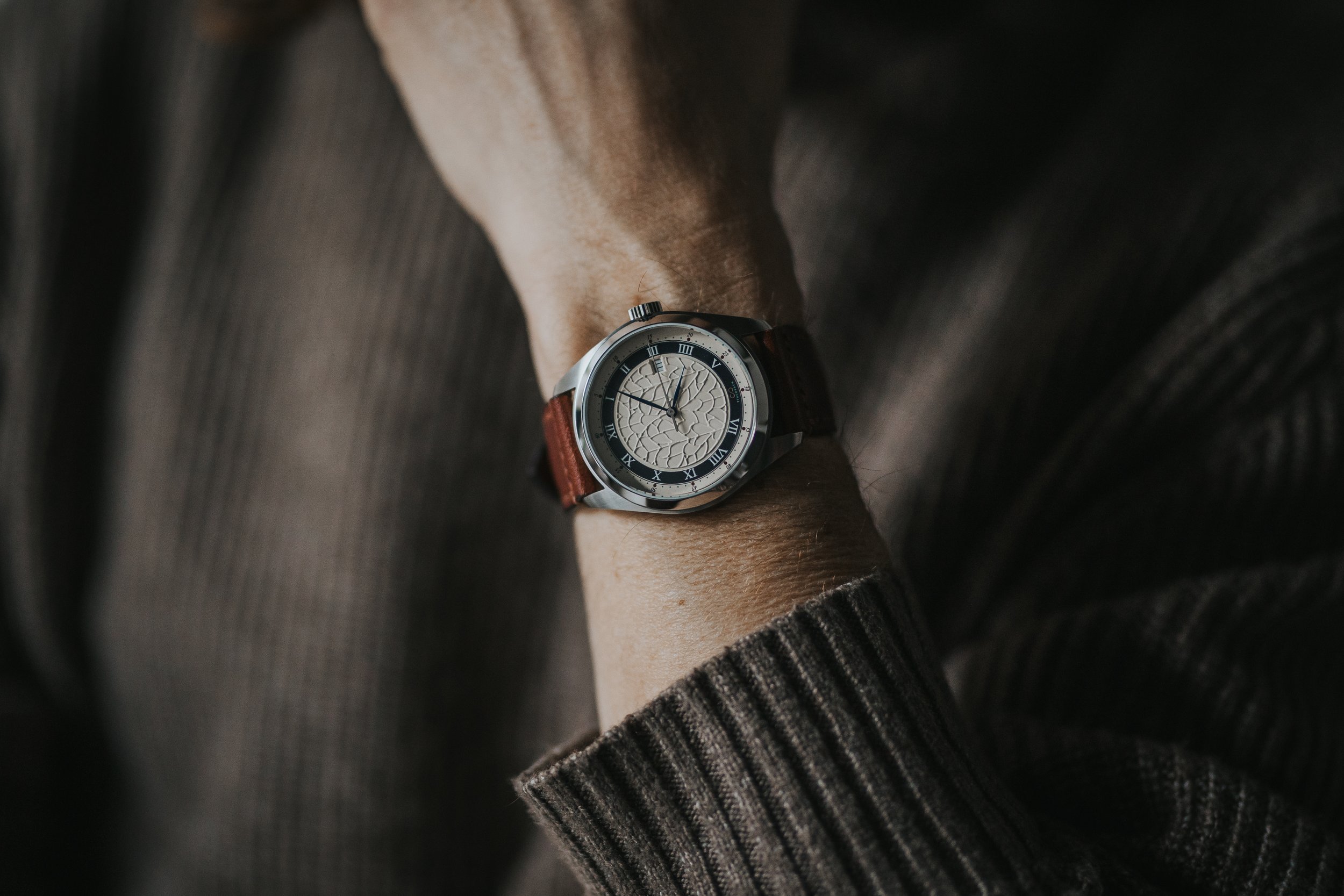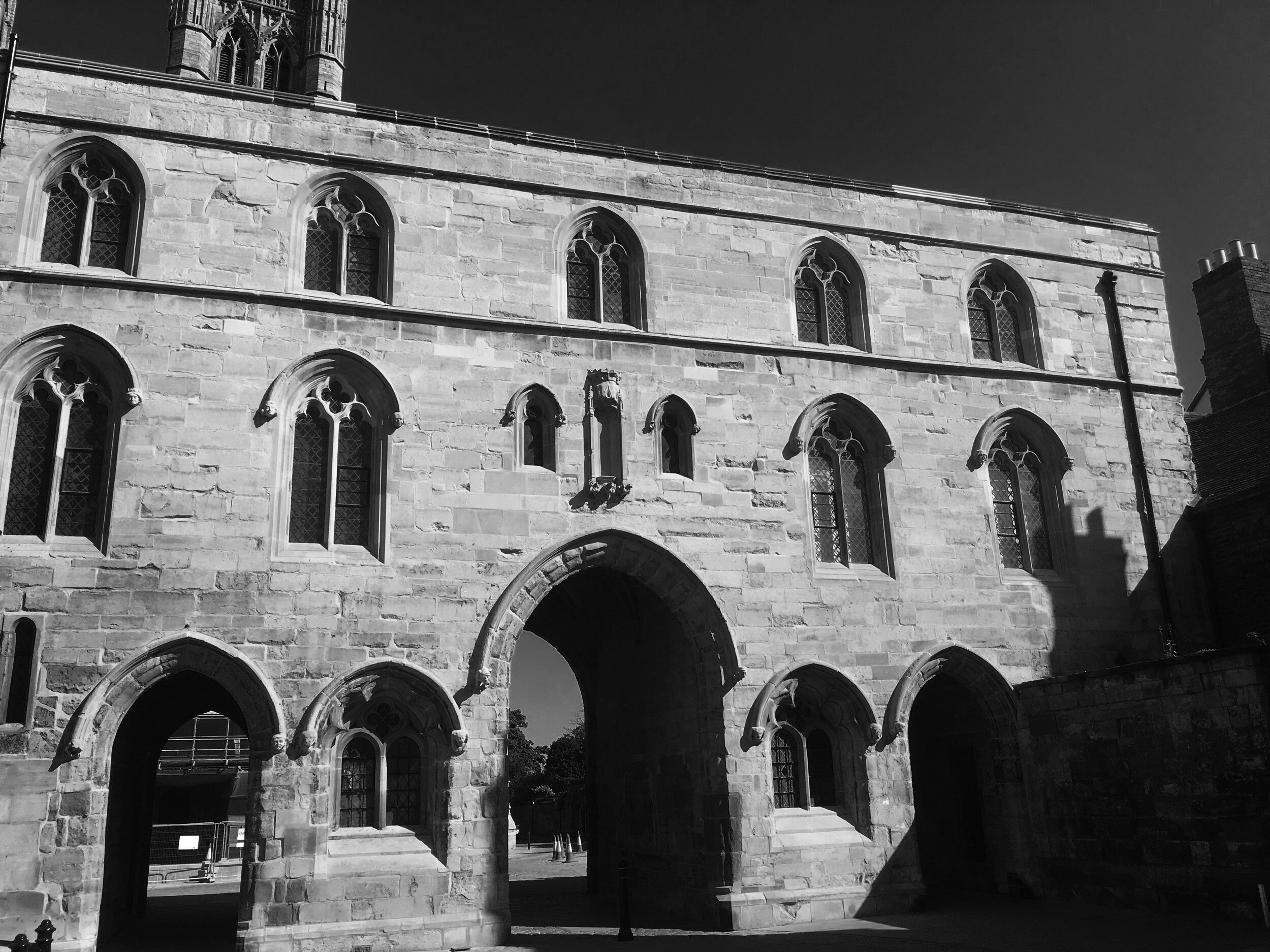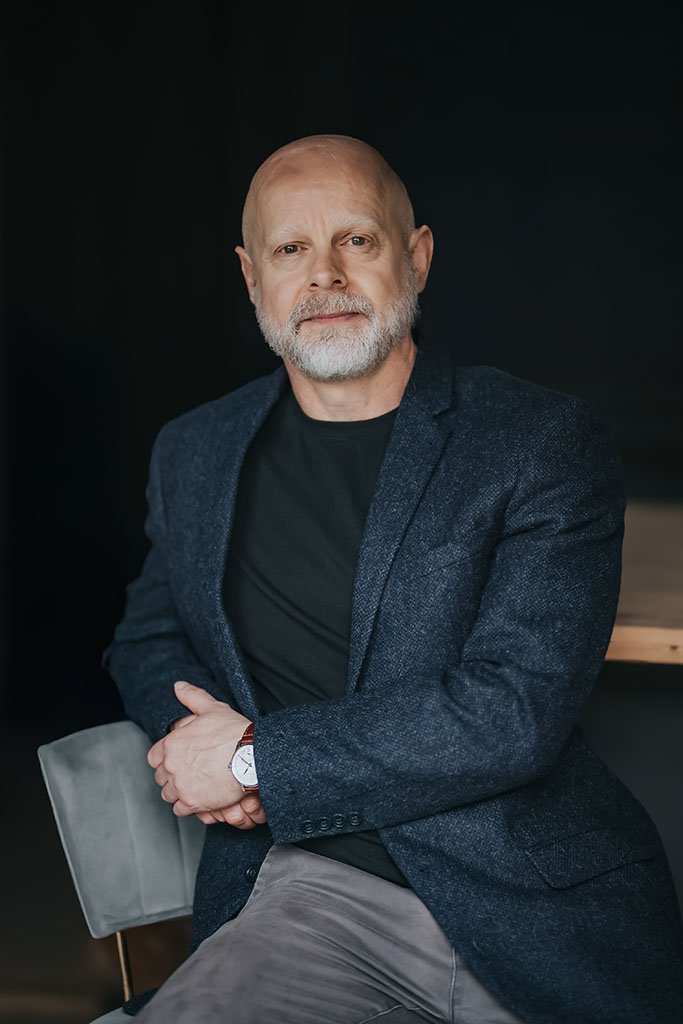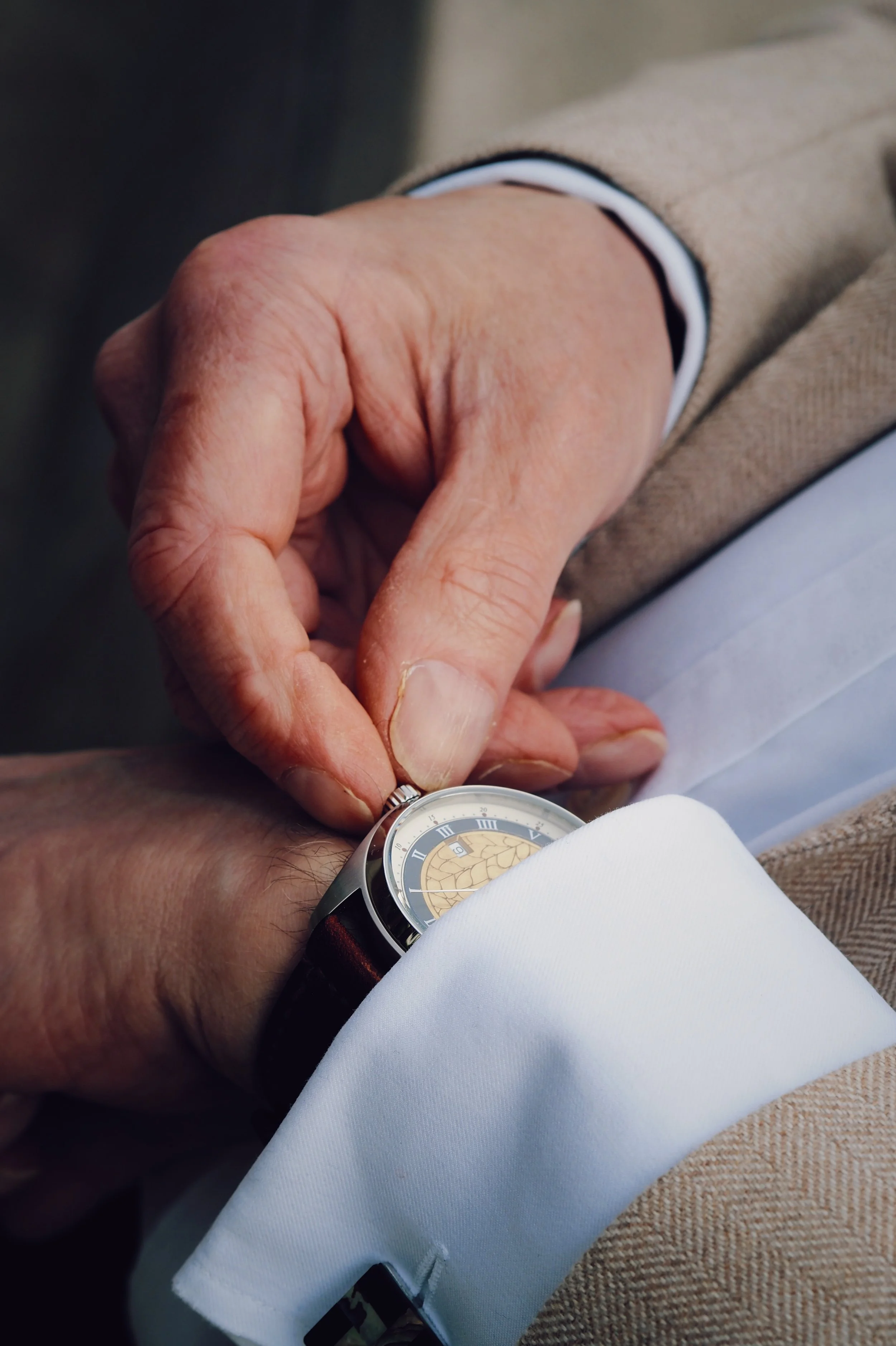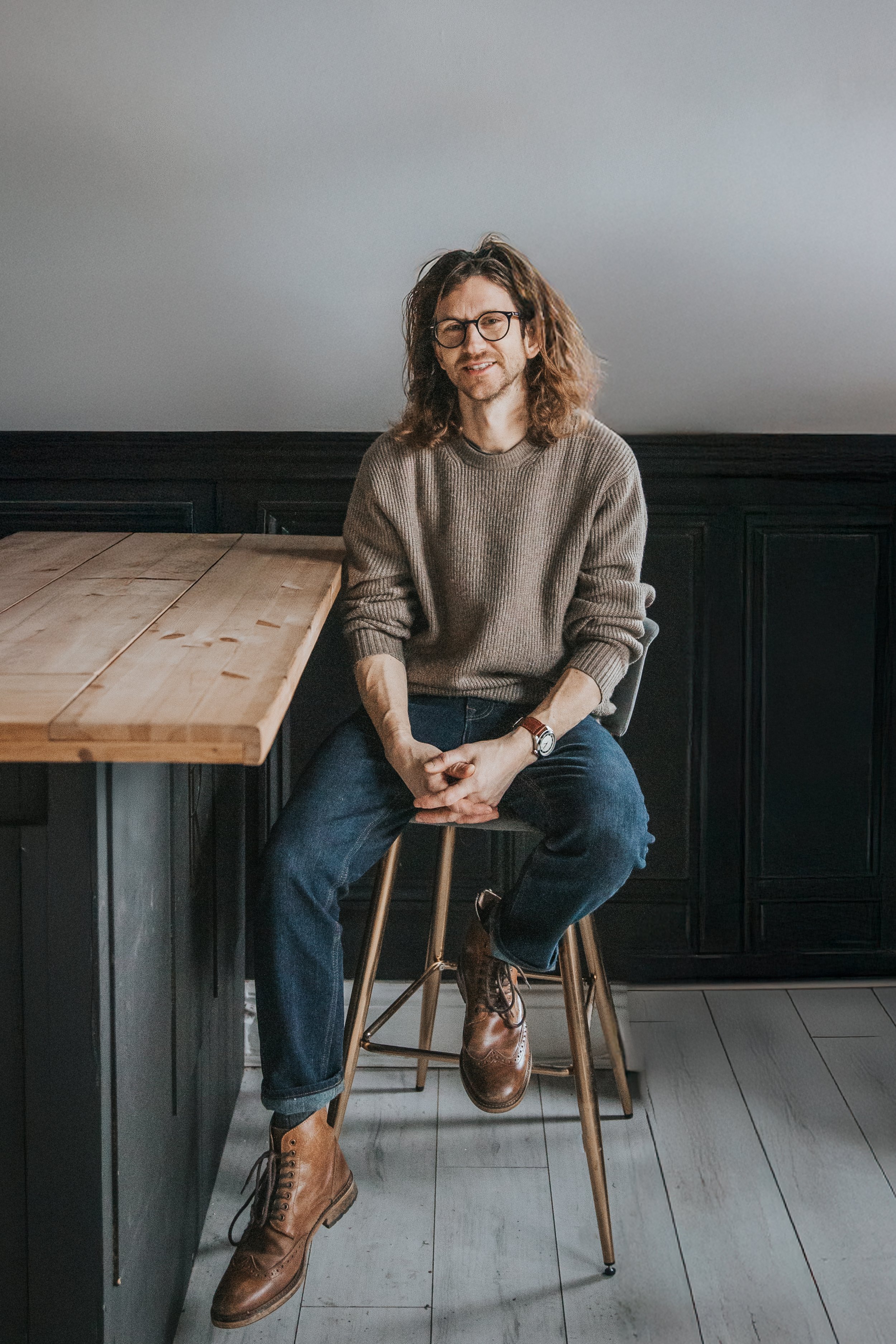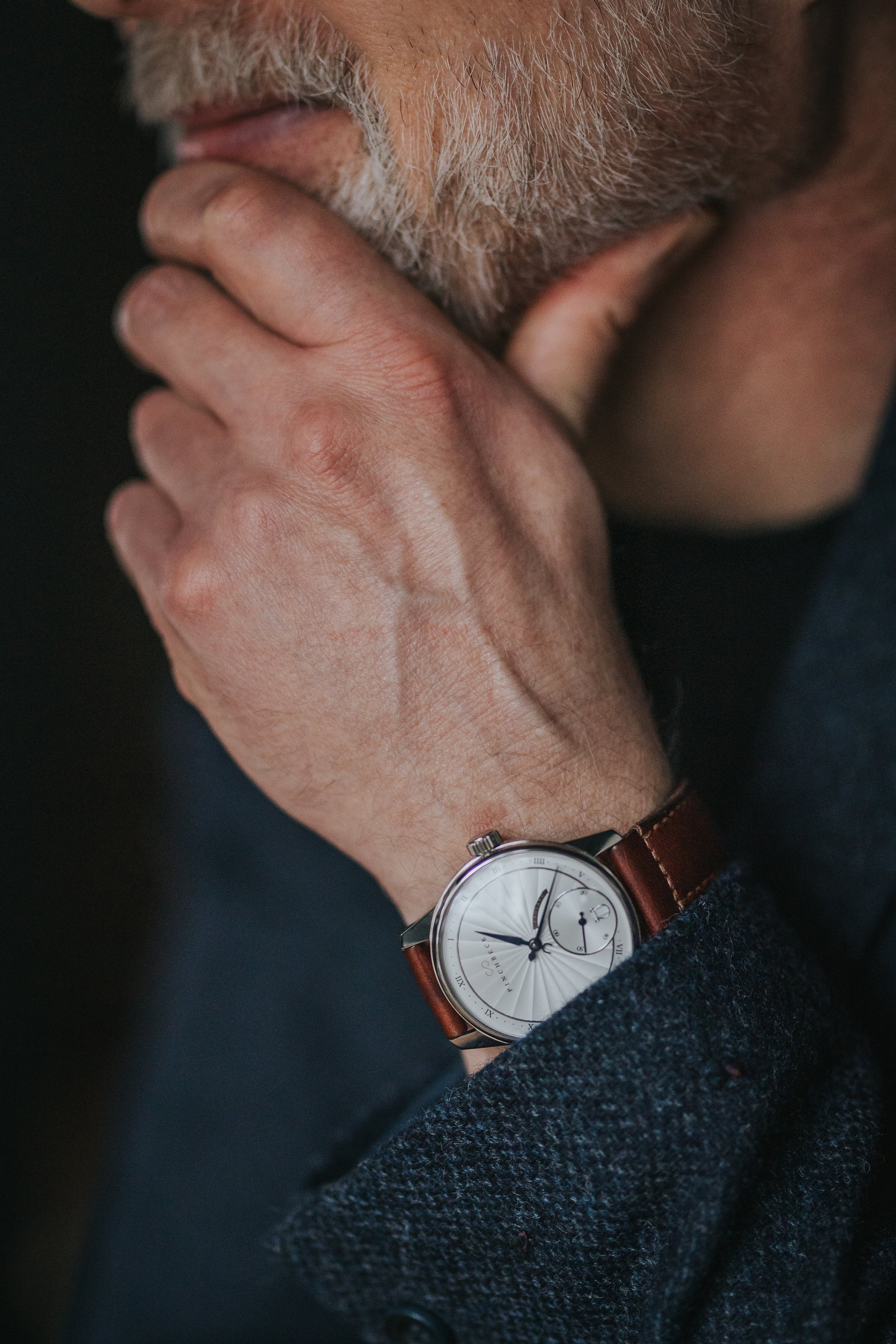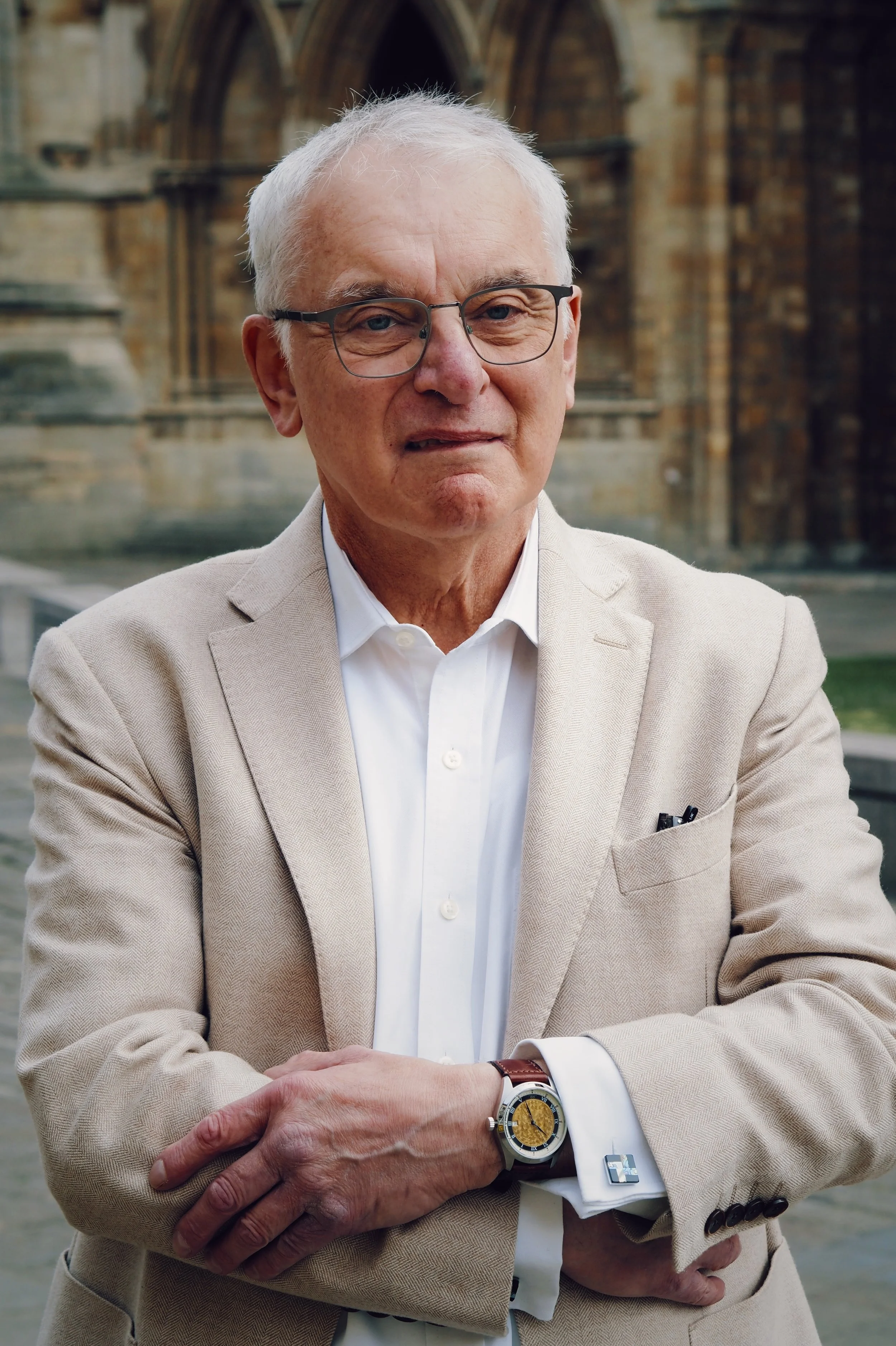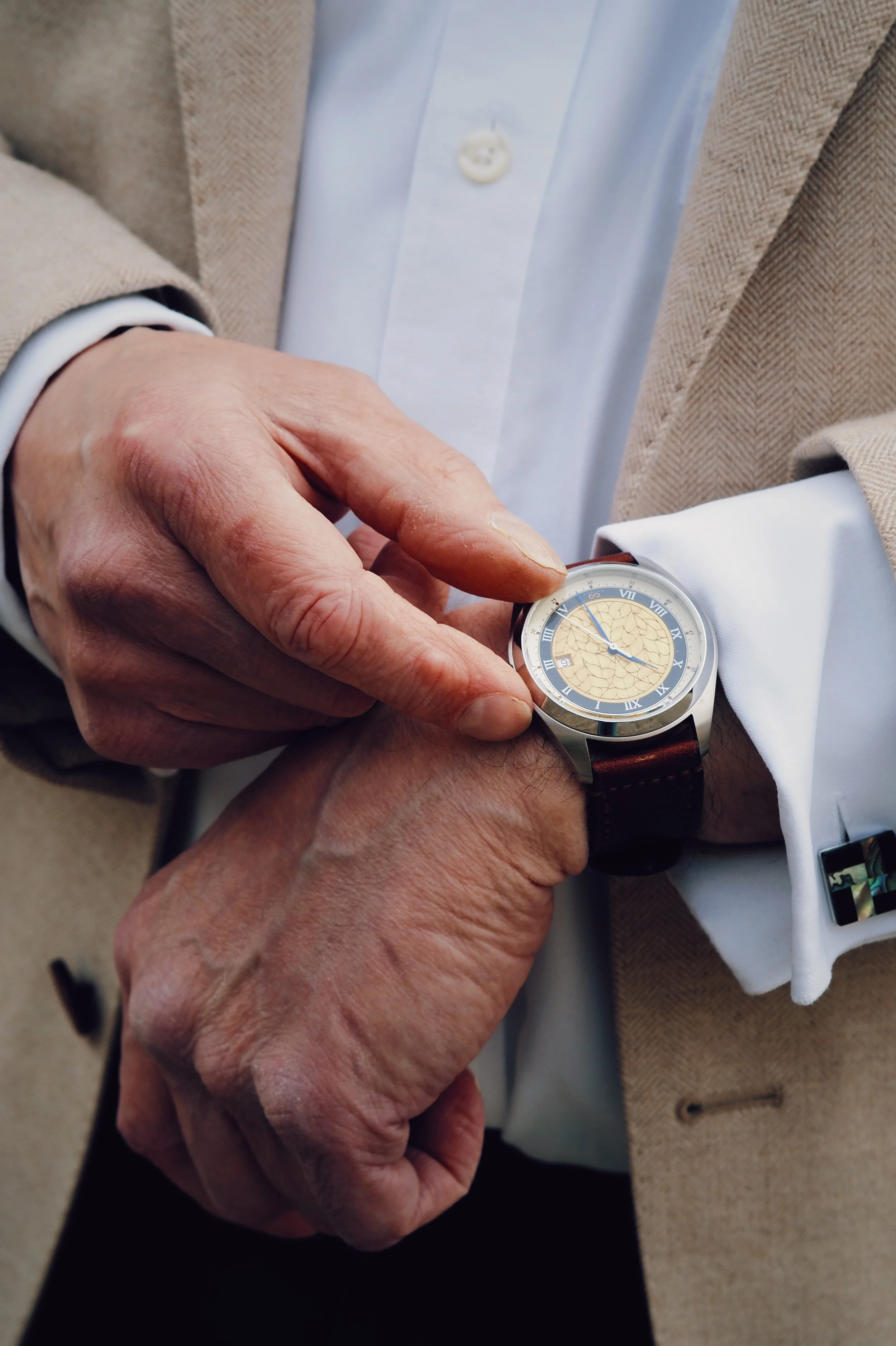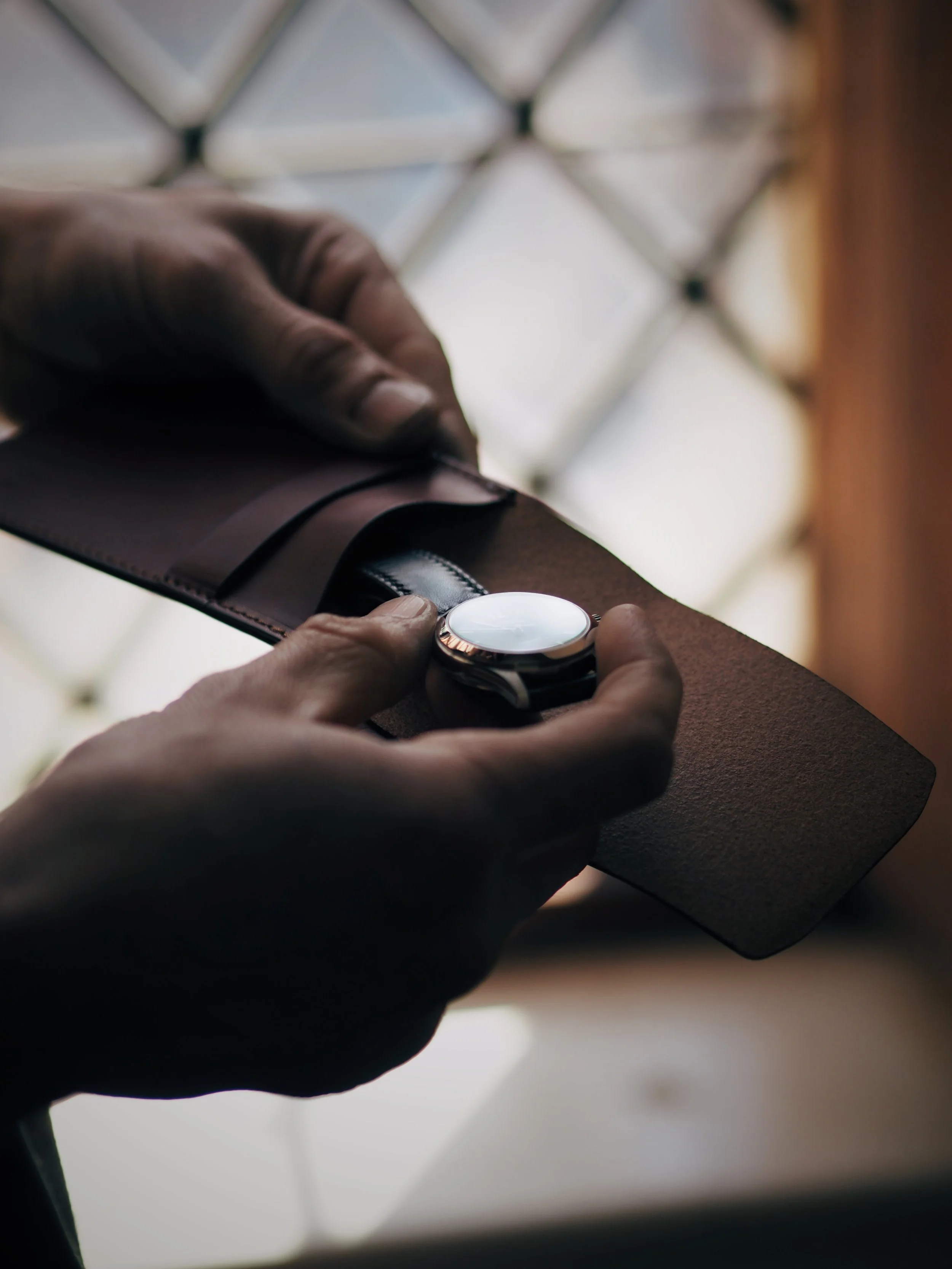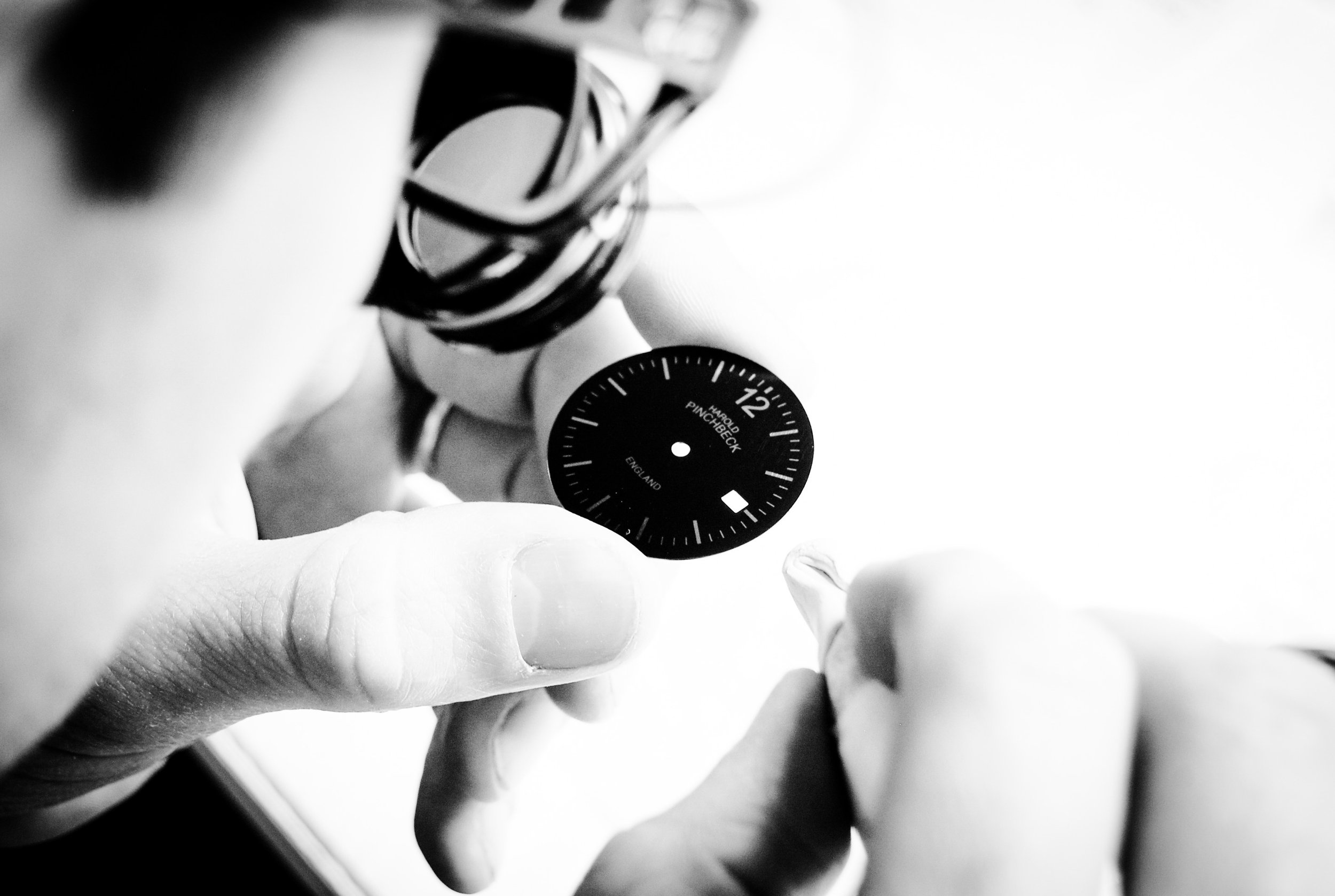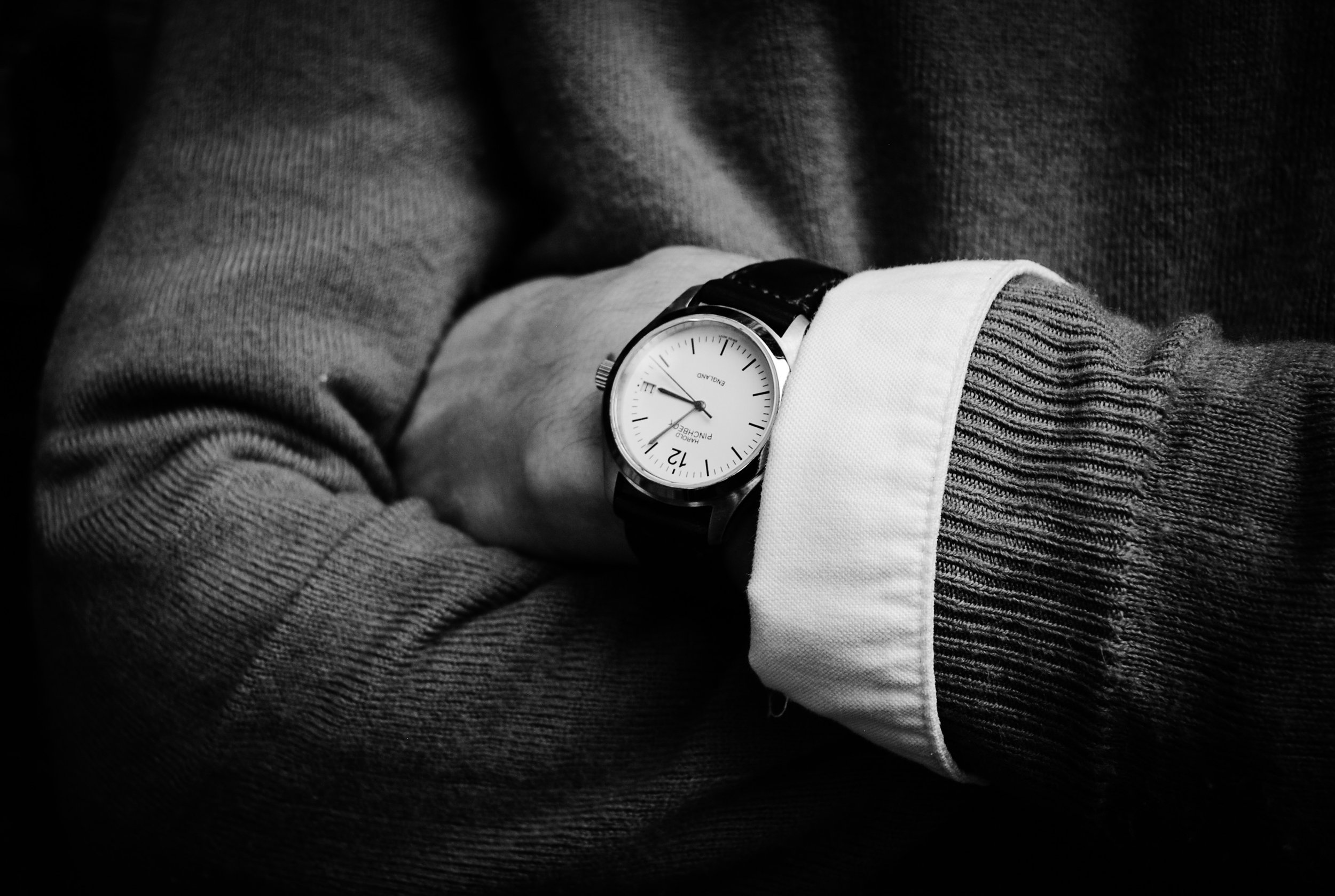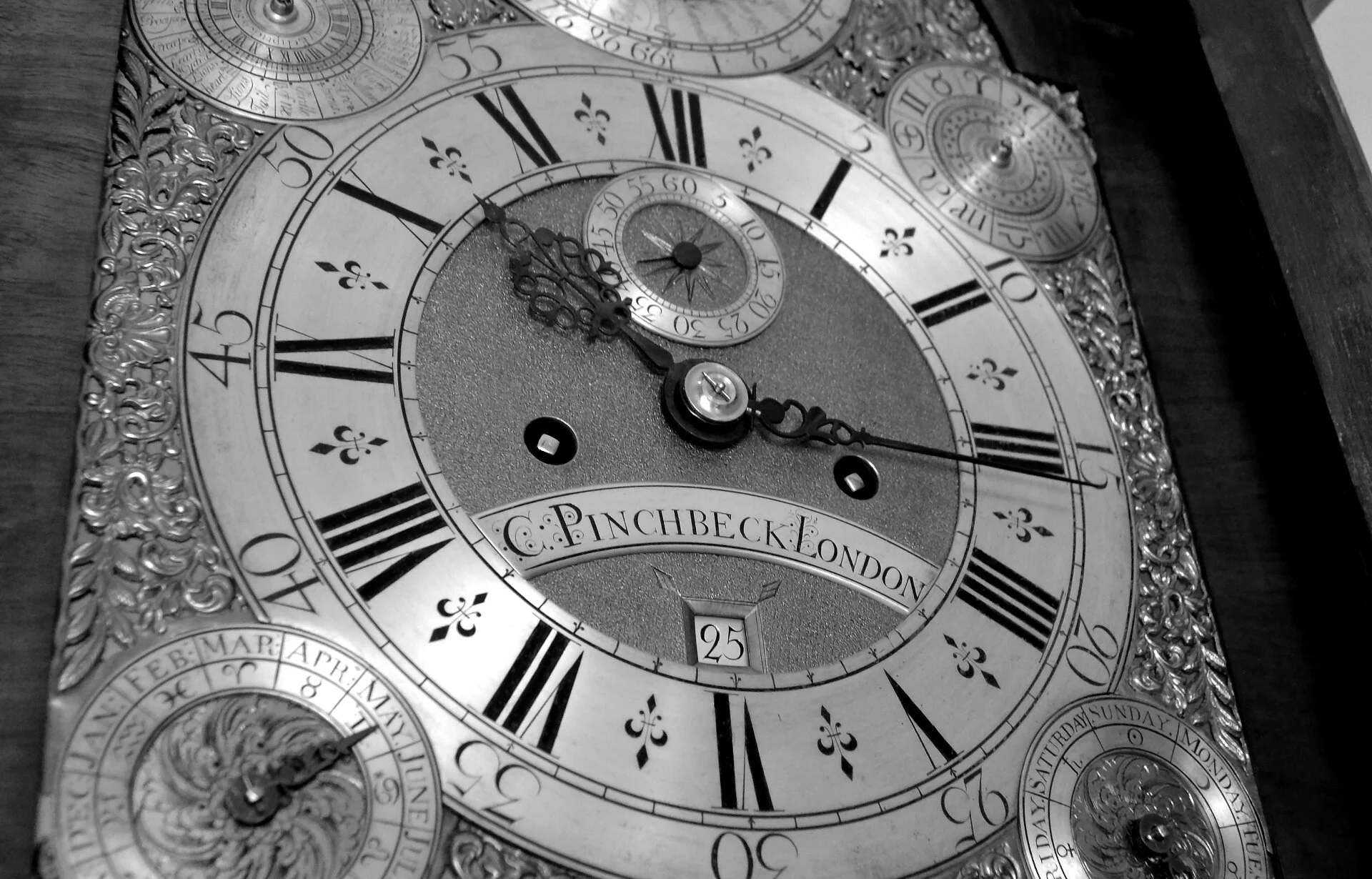
Heritage: A Legacy Of Making
Pinchbeck watches are built on a long tradition of British craftsmanship. The Pinchbeck name has been associated with precision and mechanical skill for centuries, beginning with early inventors and makers who valued innovation in timekeeping.
Harold Hunter Pinchbeck, after whom the company is named, carried this dedication forward, blending engineering skill with a love of classic English design. His passion for fine craftsmanship inspired the ethos of the modern company.
Today, that ethos continues with Paul Pinchbeck, our watch designer Jason Edwards, and our watchmaker Robert Inman, who together bring every Pinchbeck watch to life in Lincoln. Every watch is hand-assembled, reflecting the same commitment to artistry, attention to detail, and care that has defined the Pinchbeck name across generations.
From early experiments in mechanical clocks to modern hand-assembled timepieces, Pinchbeck embodies the continuity of craft, the value of experience, and the pride in making something by hand. Each watch is designed to be worn, lived in, and treasured, a bridge between tradition and contemporary style.
Harold Hunter Pinchbeck
Paul Harold Pinchbeck

